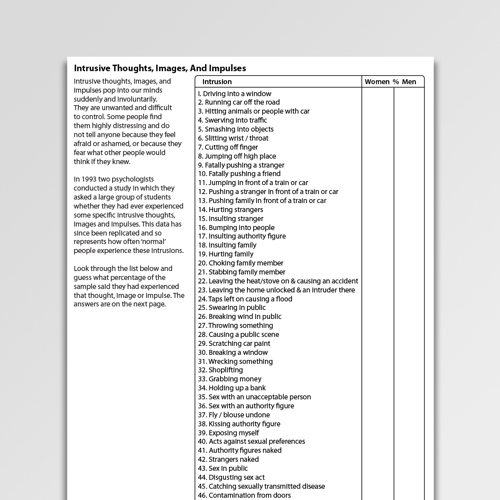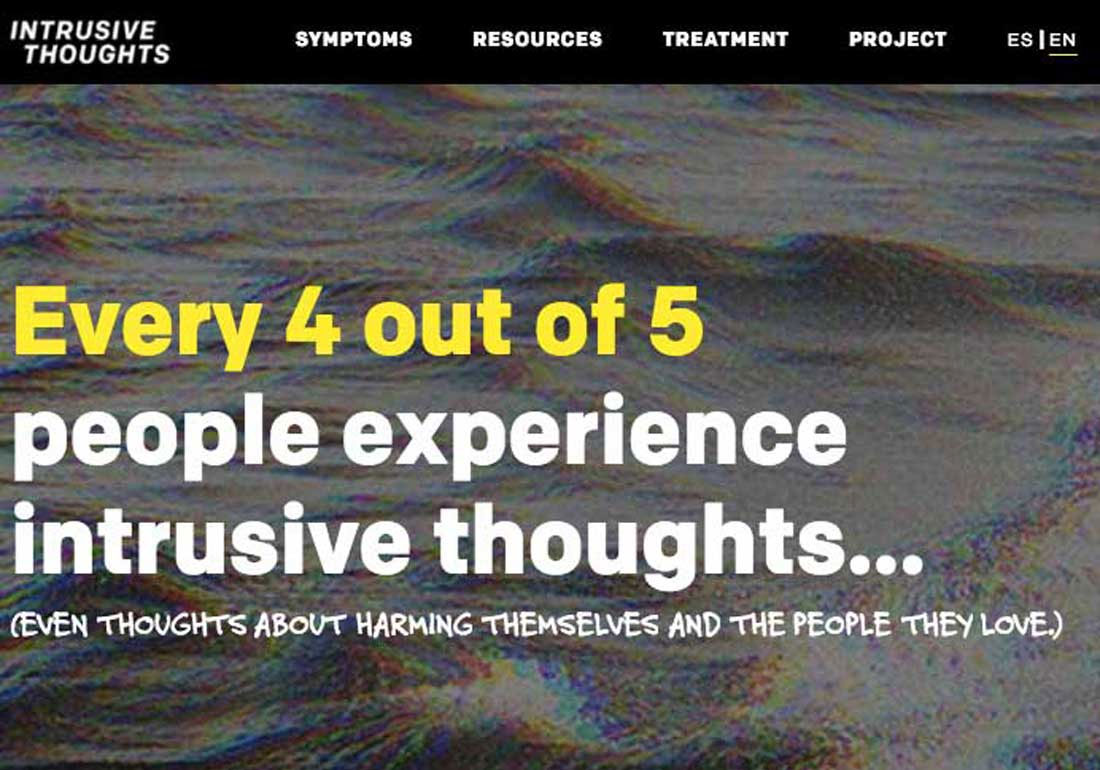

Previous studies have demonstrated that UITs are ubiquitous and occur irrespective of cultural differences.

Such unwanted intrusive thoughts (UITs) occur on a variety of themes such as contamination fears, doubts about possible mistakes, harm, immoral sexual thoughts, religion, and symmetry or order. Ĭompeting interests: The authors have declared that no competing interests exist.Īlmost everyone occasionally experiences thoughts that enter the mind abruptly and are perceived as unwanted. The SNSF was not involved in study design, data collection and analysis, decision to publish, or preparation of the manuscript. The Swiss National Science Foundation (SNSF) is funding the PhD position for Martin Kollárik and Carlotta V.

Please note we did not include the gender variable and the time stamp variables of the ecological momentary assessment prompts due to anonymity.įunding: This research did not receive any specific grant from funding agencies in the public, commercial, or not-for-profit sectors. This is an open access article distributed under the terms of the Creative Commons Attribution License, which permits unrestricted use, distribution, and reproduction in any medium, provided the original author and source are credited.ĭata Availability: The data is accessible via OSF: DOI ( 10.17605/OSF.IO/6JNRY). Received: Accepted: JPublished: July 5, 2022Ĭopyright: © 2022 Kollárik et al.

Steinborn, Julius-Maximilians-Universität Würzburg, GERMANY We discuss how research on obsessive-compulsive disorder could benefit from considering exam-related UITs and related behaviors.Ĭitation: Kollárik M, Heinzel CV, Miché M, Lieb R, Wahl K (2022) Exam-related unwanted intrusive thoughts and related neutralizing behaviors: Analogues to obsessions and compulsions. Findings indicate that some aspects of exam-related UITs and related neutralizing behaviors (e.g., association with distress and urge to neutralize) might be analogous to OC symptoms but not all (e.g., no relation to depressed mood). Overall, they were experienced with mild severity, low distress, and low urge to neutralize. During the study period, the exam-related UITs occurred on average 7 times, and the related neutralizing behaviors on average 6 times. Multilevel analysis demonstrated that the severity of exam-related UITs and related neutralizing behaviors was positively associated with OC symptoms, anxiety, distress, urge to neutralize, and stress but was not related to depressed mood. Twenty-nine students completed three ecological momentary assessment surveys per day over 7 consecutive days, assessing the severity of exam-related UITs and related neutralizing behaviors, obsessive-compulsive (OC) symptoms, anxiety, distress, urge to neutralize, depressed mood, and stress in the week immediately before an exam period. The present study investigated in what ways these UITs and behaviors are analogues to clinical obsessions and compulsions. Exam-related unwanted intrusive thoughts (UITs) and related neutralizing behaviors are common experiences among students.


 0 kommentar(er)
0 kommentar(er)
